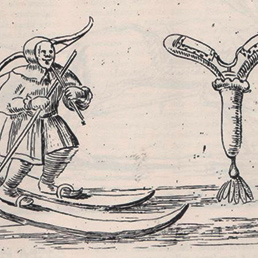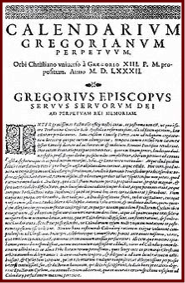Dr. Utr. Iur.
Frank
Van den Broeke
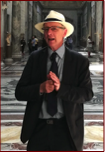
To book an authorised guided tour with me: .... Click here
Wine & Dine: ... Click here
Where to buy your tickets ... ? Click here
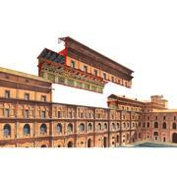

Room of the Greeck Cross, Vatican Museums Giancarlo Ticozzi (photo)
http://www.aisitalia.it/1prodotti-tipici.aspx#.VP6u_GbCfn4


Gregory XIII, Ugo Boncompagni, °7 January 1502, elected 13 May 1572, died 10 April 1585

Science & Faith
Ad decorem militantis Ecclesiae
Not may people know that in the USA, in the desert is a little piece of land that is part of the Vatican City. The Vatican Observatory on the Mt. Graham, Arizona.
Gregory XIII is for sure a pope that changed the world !! He was a close friend of Saint Philipp Neri of the Oratorians (he would recognize in1575 the most strange spiritual movement in the Roman Catholic Church: The Society of Apostolic Life (CIC 731-746)
Gregory XIII was open for new ideas and when he wanted to reform the Missal and the Breviary in the light of the Council of Trent, there had to be made a reform in the Calendar.
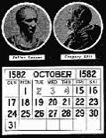
Originally, we got the Greek Calendar with only ten months. Listen to them: September = 7, October = 8, November = 9, and December derives from the number 10. But, the astronomers of Julius Caesar observed that we should have 12 months.
Whaow, must have said Julius Caesar, No problem you can call one of the months after myself, call it July; the next month you can call after my successor Augustus!! Every 4 year, there would be a leap-year, with 29 days in February (originally introduced after February 23.
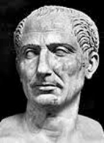
But there was a mistake in the Julian Calendar. The years that you can divide by 4 and simultaneously by 100 shouldn't be a leap-year. With exception the years you can divide simultaneously by 4-100 and 400; So, the year 2000 was a leap year. Christopher Clavius, a Jesuit and scholar (1537-1612) put a commission together in the tower of the Winds of the Vatican (picture below)

The method that Clavius would finally adopt followed calculations performed by Aloysius Lilius (d. 1576) a native of Calabria, and a professor of medicine at the University of Perugia. Pope Gregory XIII decided than that it was among his gravest concerns (Inter Gravissimas curas) to rectify the situation with a bull in 1582. In one go he took 11 days out of the calendar in order to readjust the day of Easter. This is one of the reasons that in the orthodox church Christmas is 11 days later, and also Easter differs, because they are still using the Julian Calendar. We also speak of the October Revolution of November 1917 in Russia, and I don't know if that is the reason that the Germans are holding the Munich October Beer Festival in September and not in October ????!!!
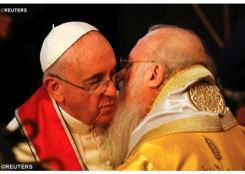
More recent, Pope Francis I seeks communion with Orthodox Churches. Where he can, he meets the Ecumenical Patriarch Bartholomew I.
There is the story (but I couldn't find the proof), that they had recently the following conversation about the day of Easter:
Pope Francis: "Hi dear friend Bartholomew, I just want to let you know that my Christ resurrects today, on April 7th, 2015. I have heard yours resurrects next week ?? How can we ever speak about full communion between the Catholic and Orthodox church if we even can't agree on something so simple as the day of the resurrection of Our Lord ?"
The bold written days were wrapped out ...
The day of Easter in the Roman Catholic Church is the first Sunday after the fist fool moon after the Equinox of the 21 st of March
Joseph de Maistre once wrote that “The scepter of science belongs to Europe only because she is Christian. She has reached this high degree of civilization and knowledge because … the universities were at first schools of theology, and because all the sciences, grafted upon this divine subject, have shown forth the divine sap by immense vegetation.”
About Ludwig von Pastor and the Vatican Library open to public in 1883
Full text by the translation of Father Frederick Ignatius Antrobus C.O. London Oratory, George Bowen
Gregory XIII &
the Gregorian Calendar of 1582
